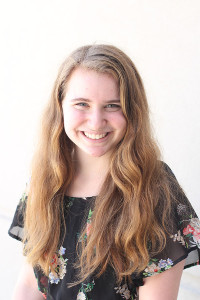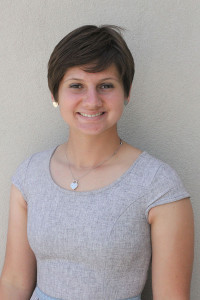1984 is the Emma Stone of the library, The Hunger Games of the Cold War, and the Pulp Fiction of books, so it should come as no surprise that Civics teacher David Ballard chose it as his favorite book from his high school days.
“I was a junior in high school,” said Ballard “[1984] was required for a sociology class.” Most students would rather count the dying blades of grass in the quad than actually read a required book cover to cover.
Sure, SparkNotes is a fine alternative to an actual book, but the details that Orwell puts into this book, even going so far as to create Newspeak, the official language of Oceania, the dystopia where the book takes place, can’t be appreciated through an abridged version.
“When I read it, we didn’t have the advantage of publications that you all have about books,” said Ballard. “You could go online right now and get a clue about what you’re going to read. We didn’t have that then. We had to really get into a book before we knew what it was about. All we had then was Cliff’s Notes, and those were illegal.”
It seems that students today who actually read the book are appreciating these details Orwell adds. 8th grader Joseph Ginsburg, who is currently reading 1984 in English class, says that his favorite parts were “the suspense and Newspeak.”
“We basically speak Newspeak when we are texting. Newspeak, for those who don’t know, is basically where you shortened everything and remove all the unnecessary words,” said Ginsburg.
This is one of the first years that students can start making the connections between Oceania and our world today, as 1984 just recently became required reading for 8th graders.
“I read 1984 when I was here in 7th grade with Mr. Ballard,” said English teacher Erin Miller who helped get 1984 into the curriculum. “I thought that 1984 was more challenging for our 8th graders, and that they could rise to that challenge. [It’s] A little more interesting and thought provoking [than Animal Farm].”
Animal Farm was the book that the 8th graders read before the switch was made.
“I had taught it before in Louisiana so I was open to making that change from Animal Farm to 1984,” said English teacher Georgia Parker. “But I know Animal Farm is really popular. I know a lot of people look back and say, ‘Oh, that was one of my favorites.’”
Parker read 1984 in 1984 while she was in college. “[Orwell] really thought the world was going to be like that,” said Parker. “Kind of scary, but then we thought it was kind of stupid too, like did you really think it was going to be this bad?”
Parker incorporated 1984 in her curriculum by paring it with a young adult novel, such as Divergent, Maze Runner, or Delirium.
“[My students] look at things that are similar between 1984 and young adult literature, so that they see that today that authors are still thinking about how government can twist off to control [their citizens],” said Parker.
The book was published in 1949, soon after World War II ended and the Cold War began. “At that point when it was written, and when I read it, the Cold War was still going on and Big Brother, to me, represented the Soviet Union,” said Ballard.
Big Brother is the totalitarian government in Oceania that stops at nothing to keep an absolute watch on every citizen. Telescreens, a mixture of TVs and security cameras, are found in most public and private areas to ensure that every person is following the Party’s rules. These rules cover everything from what time one wakes up to one’s sexual relations.
These rules ensure equality for all people; it is nearly impossible to determine while reading the book if there is any diversity in their society. Even though equality for all seems like an ideal situation, in reality it takes away simple rights, such as what to wear, from all people.
This lack of freedom may seem far-fetched, but Ballard points out that countries very similar to Oceania exist today.
“The fact that government can and will do whatever is necessary to protect us from harm– I think it’s more relevant in countries that are more totalitarian. Cuba or Communist China could be good examples,” said Ballard.
Even though these types of countries seem to be from another planet, Ballard explains that America is not immune to such circumstances.
“I think we can all say we’ve seen more and more of Big Brother in our society,” said Ballard. “There are video cameras on campus that watch us everyday, we have cameras everywhere, and now we’re going to have drones flying over us in Orange County. What [Orwell] was talking about [has become] reality today.”
Because of the striking similarities between Oceania and the future, Ballard felt “scared, nervous, [and] worried about the future,” while reading 1984.
He said he most related to Winston, the protagonist of the book, because he “represented the common nation.”
The things that Winston is subject to add a chilling layer in the novel, since most readers will strongly connect with him as Ballard did.
Some students may be repelled by 1984 because of its length– 245 pages, plus an appendix– and the fact that it takes a good 100 pages before the action starts to take place.
Ballard commented, “I think he designs it that way just to make you really read further into it so you get into the meat of it.”
As with most required reading, the concepts found in 1984 are not fully understood until one puts together all the pieces of the puzzle.
“I think it took most kids my age a while to fully have all of the relevant topics that he was trying to tell us. I think some of the superficial things kind of clicked in, but as far as really understanding, it took a while,” said Ballard.
One of Orwell’s main purposes of writing 1984 was to serve as a warning to future generations. Ballard thinks that it fulfilled its duty.
“I think it scared a lot of us in my generation… to be a little more aware of what was going on with the Soviet Union and their plans to try to become the ultimate rulers of the world,” said Ballard.
The book was not simply a warning for those in past decades. Many of the central themes in 1984 are found in many of today’s popular books, such as The Hunger Games and Divergent, which take place in dystopian societies.
Ballard believes his generation was drawn to this work because they “lived through the era of dark suspicions at the end of the war.”
As for today’s readers, 1984 and the related works show “the fact that a few people, a minority, can capture control of the majority,” said Ballard.
Although it shares the theme of dystopia with today’s books, 1984 breaks the typical mold of predictable endings. “[With] the books I had read before, the endings were very predictable. The guy was going to get the girl, and all was going to be well,” said Ballard. But Orwell chose to show a realistic view of controlling governments.
“[The end] was shocking for all of us to read; the issue of privacy being taken away from us by a government, that was something that was kind of unfathomable. It was hard for us to grasp the hold of [it],” he said.
The ending of 1984 is one of the many parts that left the readers questioning the future of their society and causes readers to wonder if a government of that magnitude could exist under current conditions. If so, then every human is going to be sent to Room 101. . .




